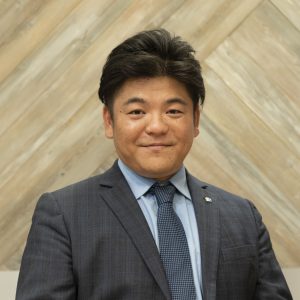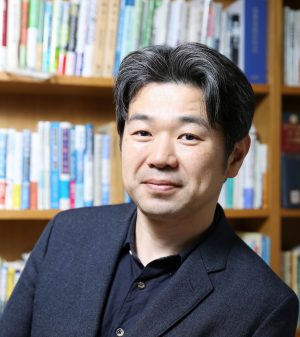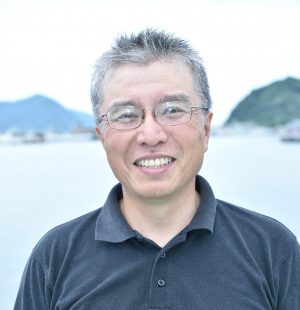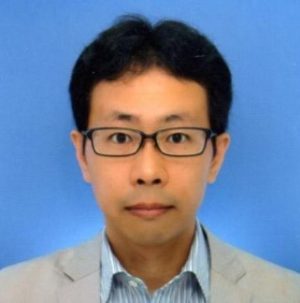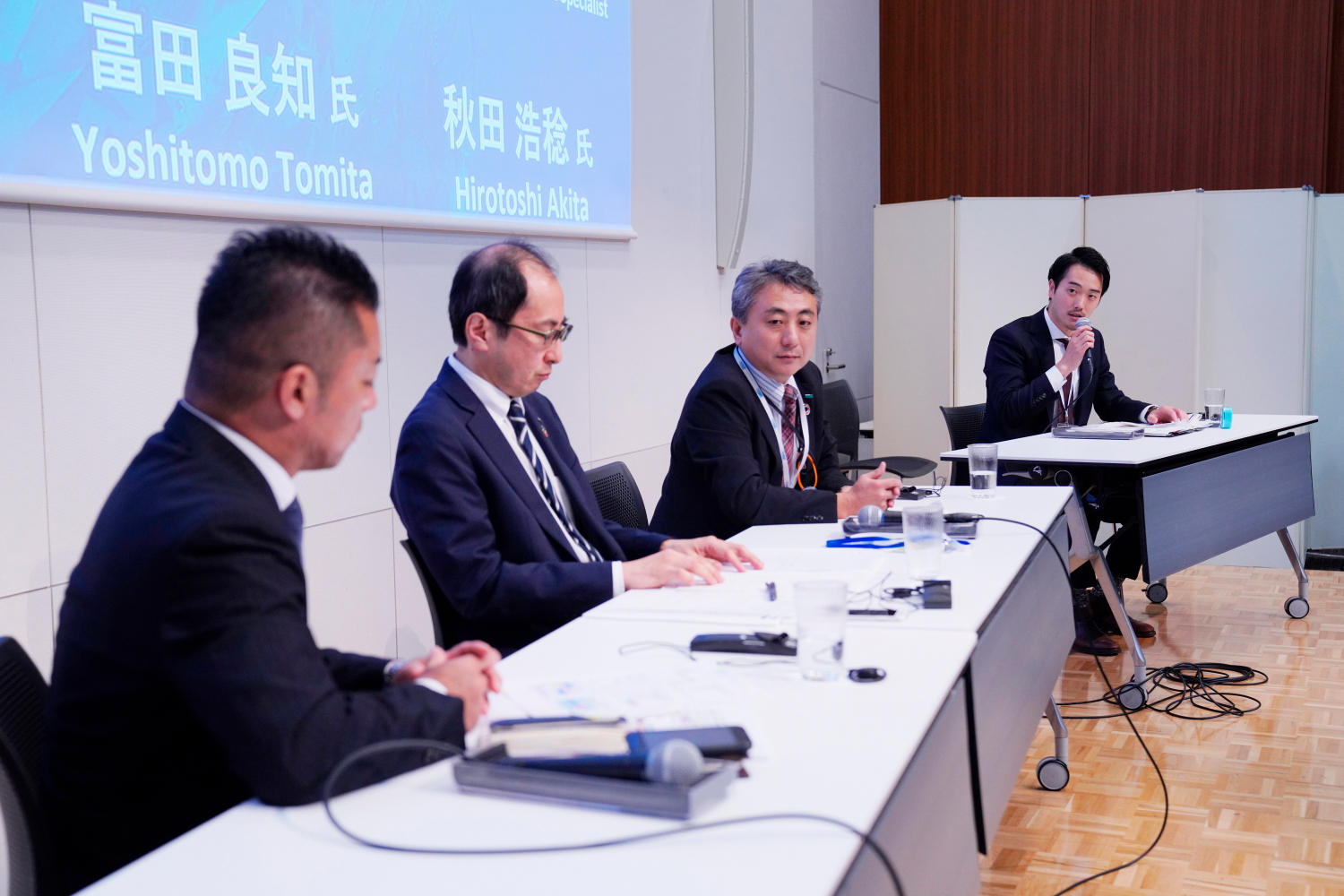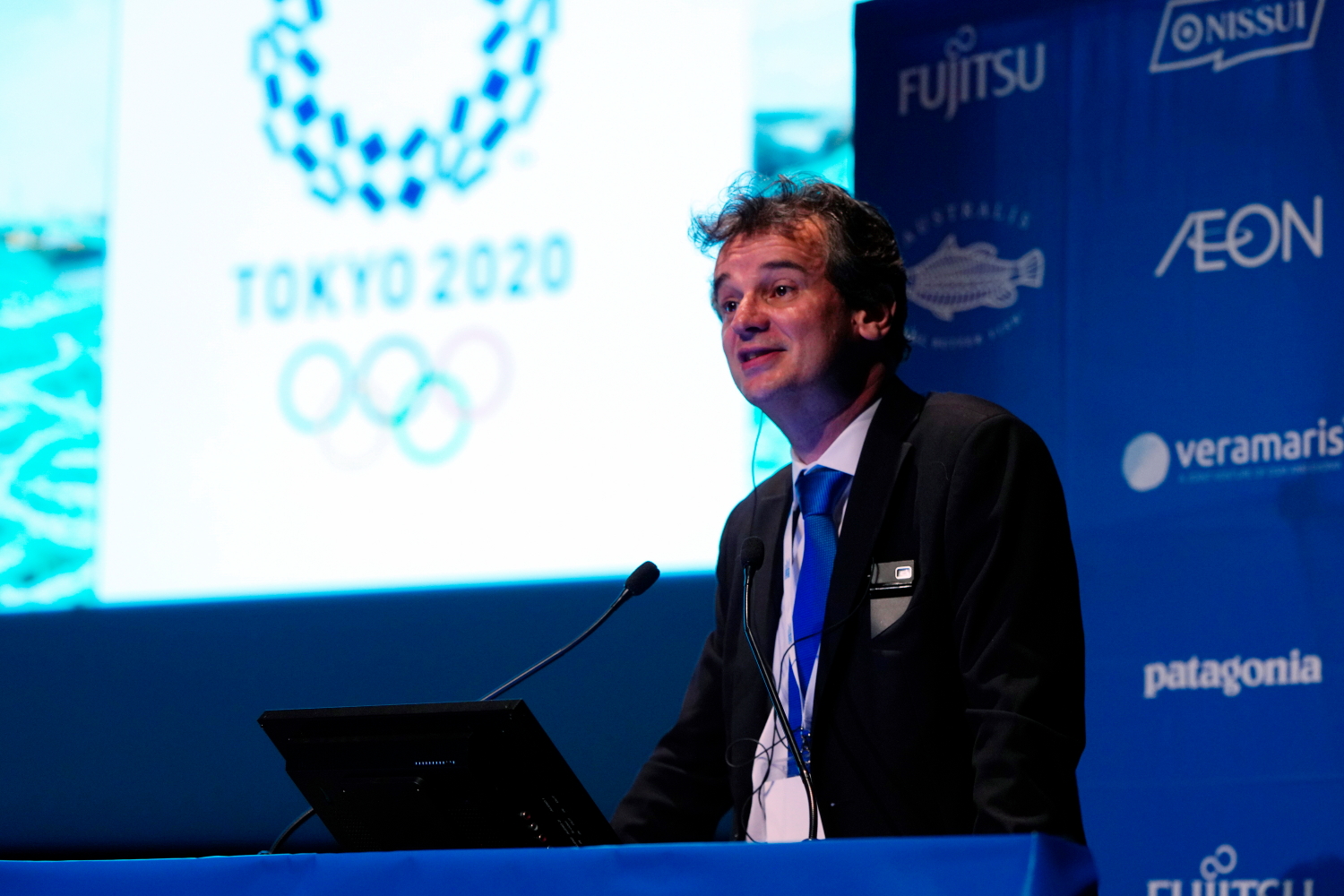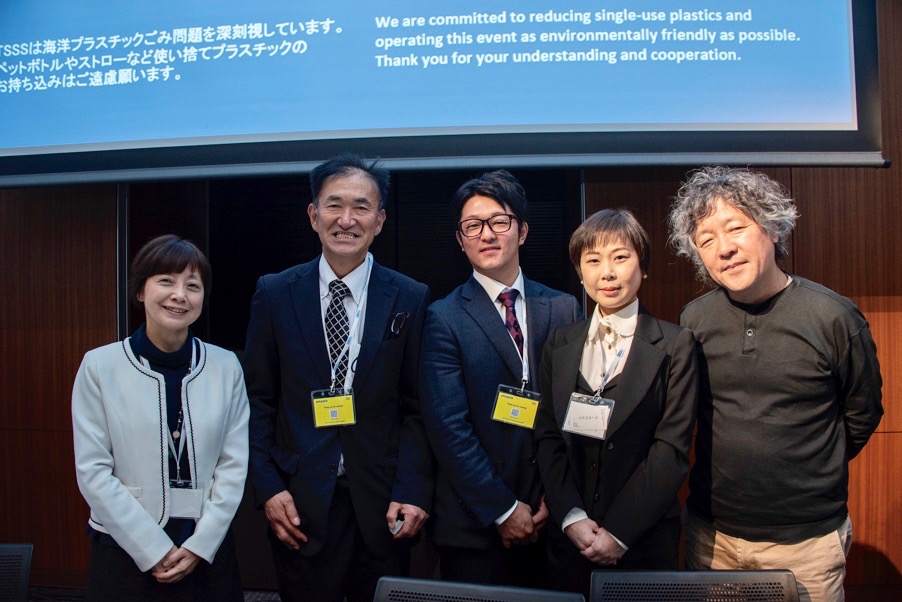Fishery Reform and the Future of Coastal Fishing Communities in Japan
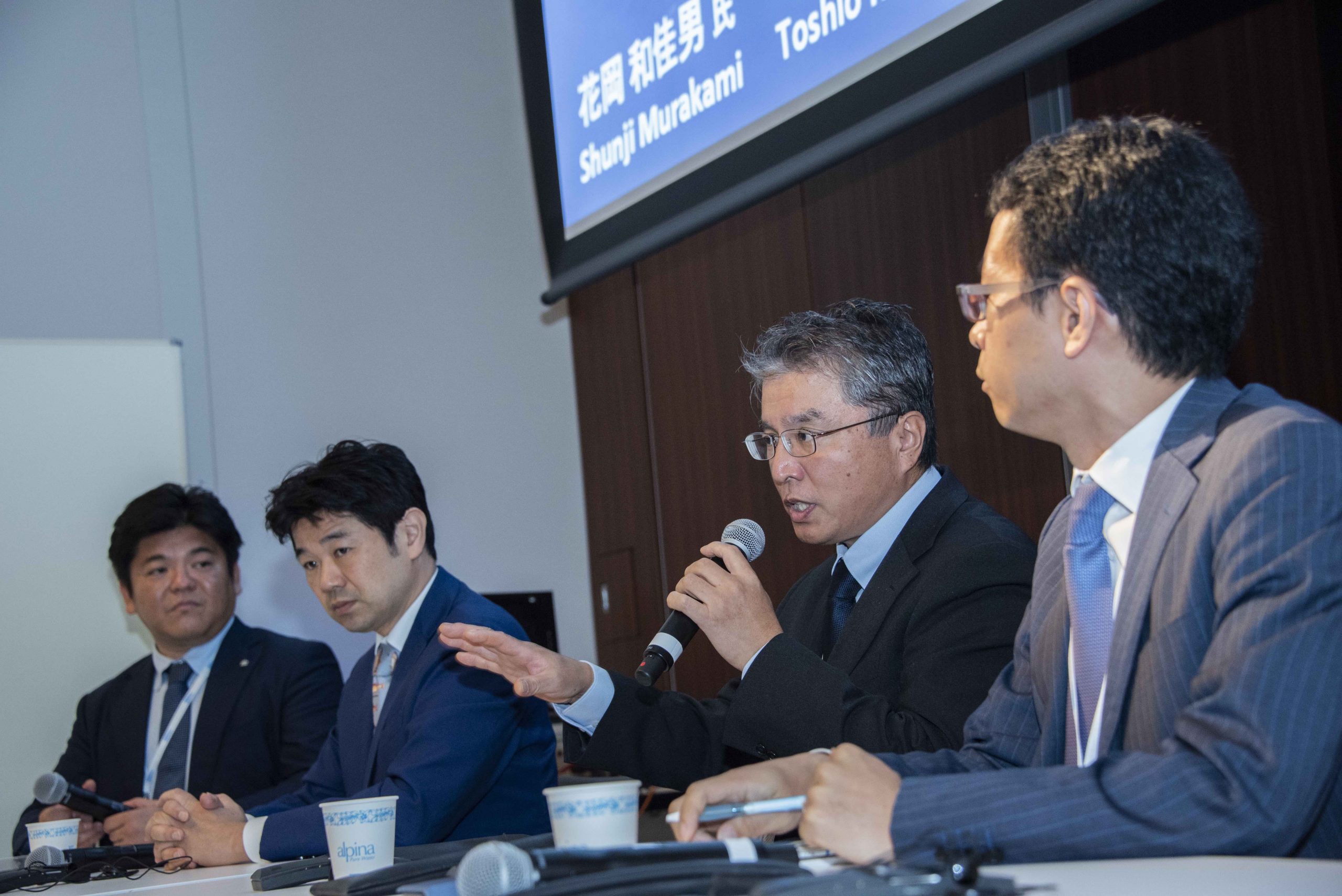
The Japanese Fisheries Agency revised the country’s Fishery Act considerably in December 2018. In leading up to its enforcement in two year’s time, challenges and perspectives were discussed from the viewpoints of academia, NGO and fisher.
Reform Requires Bottom-Up Participation
Under the amended Fishery Act, the central government will take responsibility for enforcing catch regulations, which had been carried out voluntarily by fishers. Additionally, resource management based on MSY (Maximum Sustainable Yield: maximum catch that can be harvested sustainably) will be maintained; species managed based on TAC (Total Allowable Catch: catch limit set for individual fishery) will be expanded beyond the seven species currently managed under TAC; and IQ (Individual Quota) will be applied to individual fishers. These methods have been implemented in countries around the world, resulting in the recovery of resources and growth of fishery industries. However, the catch volume will decrease temporarily. Furthermore, shifting from a partially optimized management system — developed over many years of coordination between various interests — to a completely optimized management system has garnered confusion, as well.
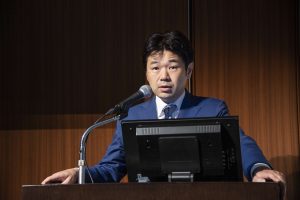
Dr. Toshio Katsukawa, associate professor at Tokyo University of Marine Science and Technology’s Office of Liaison and Cooperative Research, has been working together in Ishinomaki, Miyagi prefecture with the local government and a fishermen organization called Fisherman Japan. In 2019, Dr. Katsukawa began organizing workshops that brought together local fishers, seafood processors and distributors that are usually in conflict with one another at the local auction house. By providing a workshop that was not designed to force any immediate solutions but instead offering a space for stakeholders that otherwise do not have contact opportunities for multi-faceted dialogue, many participants voiced their support of continuing those kinds of discussions. Dr. Katsukawa states: “Even though FIshery Law reform is a top-down process, there is a need to center the designing process of the policies around the people on the ground because every fishing port and fishery type have differing situations. A model in which government officials make decisions internally with select experts will no longer work. The consensus building process in Japan must change in a way where draft proposals are shared with those on the ground to be debated and offered chances to provide input.”
Using Past Data to Identify Challenges and Course of Action
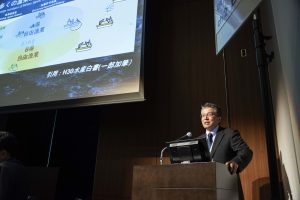
Katsushi Kuwamura, who is a squid fisher in the Munakata Fisheries Cooperative, pointed out the high number of ships allocated to “Other Fisheries,” which is left over after the tonnage for the TAC is divided up by the reformed Fishery Act, from the perspective of coastal fisheries. 95% of Japan’s fisheries are independently-owned, and these fisheries, which are mainly coastal fisheries that use vessels, account for one-fourth of the national catch, despite their small scale. Within these small slots, “individual allotments are nothing short of impossible and ultimately result in an inevitable competition to see who comes first.”
Kawamura, however, believes that reforms are necessary to revitalize Japan’s coastal fisheries and have been analyzing catch record data of Japanese horse mackerel to evaluate the challenges in implementing TAC regulations. He calculated average catch volume shares for each management classification throughout Japan’s waters and set a “Virtual TAC” with the lowest fishing pressure determined by Japan Fisheries Research and Education Agency. He found that regions with low catch share allotment exceeded its limit as soon as fish stock arrived in the region. Kawamura mentions, “if it is possible to offset the limits due to differences between locales, measures such as batch management can be implemented for regions with low catch share volumes. It is important to identify issues by visualizing the situation and conducting deep-dive analysis of each issue one-by-one.”
After emphasizing that trust is the basis for the bottom-up approach, Kawamura added that “there exists a customary self-governing aspect in regions where community members regularly see each other in person, and coastal fishery communities are concerned that the reform will disrupt the order that has been established within their community.” He summarized by stating that “applying the traditional methods of prefectural government, fisheries cooperative associations and fishermen within the new framework will lead to development of trust.”
Objectively Assessing Sustainability of Set Net Fisheries Unique to Japan
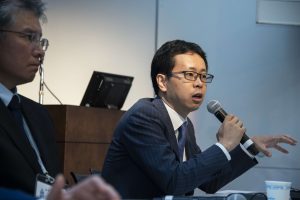
Kazuhiko Otsuka, Japan Director of Environmental Defense Fund (EDF) Ocean Program, presented challenges faced by Japan’s unique set-net fisheries — an industry that provides a stable means of employment for fishers with production volume that make up 40% of the nation’s coastal fishery sector. Despite Japan having some of the world’s richest fishing grounds, many species not managed under TAC have stock abundance levels that are less than half of MSY, averaging at 70% of MSY level altogether. Species certified under MSC certification (which, as of 2018, make up 15% of global catch volume) lean heavily toward whitefish, shellfish and salmon species. Small migratory fish and squid species, main target species for set net fisheries, are low in certification ratio. In fact, set net fisheries are deemed difficult to be certified in general under the current certification scheme because they are a “passive fisheries” that target multiple species due to its limited target selectivity.
Given those circumstances, EDF partnered with universities, businesses and NGOs to launch the “Sustainable Set-Net Fisheries Project” and currently developing a guideline to improve selectivity of set-net fisheries based on various case studies. Plans are in place to work with MSC to provide feedback to the certification scheme based on their finding, as well as working with retailer AEON to engage in projects to raise consumer awareness regarding seafood sustainability. “Although set-net fisheries have been existing in Japan for over 400 years, we hope to objectively evaluate the fishing method and be able to proudly call it sustainable”, states Otsuka.
Wakao Hanaoka of Seafood Legacy closed the session with a hopeful remark: “We can together lead Japan’s fisheries reform to success if each of us consider ourselves as key players in this movement and take action.”
